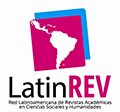Comunicar la ciencia en la antigua Roma: nuevas formas de decir lo dicho
DOI:
https://doi.org/10.22235/d.v0i16.344Resumen
A partir del análisis de los conceptos de “originalidad” e “imitación” en el mundo romano, este artículo estudia los alcances de la literatura científica romana: si puede considerarse como tal su originalidad y su autonomía respecto de los modelos griegos, y sus aportes para la historia y la comunicación de la ciencia en la antigüedad. El artículo se centra en dos obras de carácter técnico-científico escritas en latín: la monumental Historia natural de Plinio y el recetario De re coquinaria . En conclusión, busca establecer similitudes y diferencias entre la literatura técnica y la literatura científica en Roma, y sobre todo discute la originalidad del mensaje científico comunicado por los romanos y el carácter divulgativo de los autores latinos.
Palabras clave: Antigua Roma, ciencia, divulgación, literatura técnica, literatura científica, Historia natural, De re coquinaria.
Based on the analysis of the concepts of “originality” and “imitation” from the roman world, this article studies the reach of roman scientific literature: if its contribution to the history and communication of science in the ancient times can be considered as such. This article focuses on two works of technical and scientific character, both written in Latin: the monumental Natural History by Plinio and the recipe book De re coquinaria . In sum, it seeks to establish similarities and differences between technical literature and scientific literature in Rome and, above all, it discusses the originality of the scientific message communicated by the Romans and the informative character of the Latin authors.
Key words: Ancient Rome, science, divulgation, technical literature, scientific literature, Natural History, De re coquinaria.
Descargas
Citas
Adams, J. N. (2003). Bilingualism and the Latin Language. Cambridge: Cambridge University Press.
Albrecht, M. (1997). Historia de la literatura romana. Barcelona: Herder.
André, J. (1986). Sur la constitution des langues techniques en latin. Etudes de Lettres, 1, 5-18.
Fleury, P. (1990). Les textes techniques de l'Antiquité. Sources, études et perspectives. Euphrosyne, 18, 359-394.
Formisano, M. (2001). Le letterature tecnico-scientifiche nello spazio letterario tardolatino. Roma: Carocci.
Fuhrmann, M. (1985). Literatura romana. Madrid: Gredos.
Mieli, A. (1925). Manuale de storia della scienza. Roma: Antichità, Casa Editrice Leonardo da Vinci.
Millares Carlo, A. (1976). Historia de la literatura latina México: Fondo de Cultura Económica.
Mondolfo, R. (1960). En los orígenes de la filosofía de la cultura. Buenos Aires: Hachette.
Montero Cartelle, E. (2003). La literatura técnica latina de época tardía: aspectos lingüísticos y literarios. Cuadernos de literatura griega y latina, 4, 259-280.
Codoñer, C. (Ed.). (1997). Prosa técnica no gramatical. Historia de la literatura latina. Madrid: Cátedra.
Mudry, P. (1986). Science et conscience. Réflexions sur le discours scientifique à Rome. Etudes de Lettres, 1, 75-86.
Sarton, G. (1960). Ciencia antigua y civilización moderna. México: Fondo de Cultura Económica.
Descargas
Publicado
Cómo citar
Número
Sección
Licencia
Derechos de autor 2012 Dixit

Esta obra está bajo una licencia internacional Creative Commons Atribución-NoComercial 4.0.
Desde el n.º 32 en adelante todos los contenidos se encuentran bajo la Licencia Creative Commons Atribución 4.0 Internacional (CC BY 4.0).
Las ediciones número 29-31 se encuentran bajo la Licencia Creative Commons Atribución-NoComercial 4.0 Internacional.
Los contenidos correspondientes a los números 28 y anteriores se encuentran bajo la Licencia Creative Commons Atribución-NoComercial-CompartirIgual 4.0 Internacional.


















